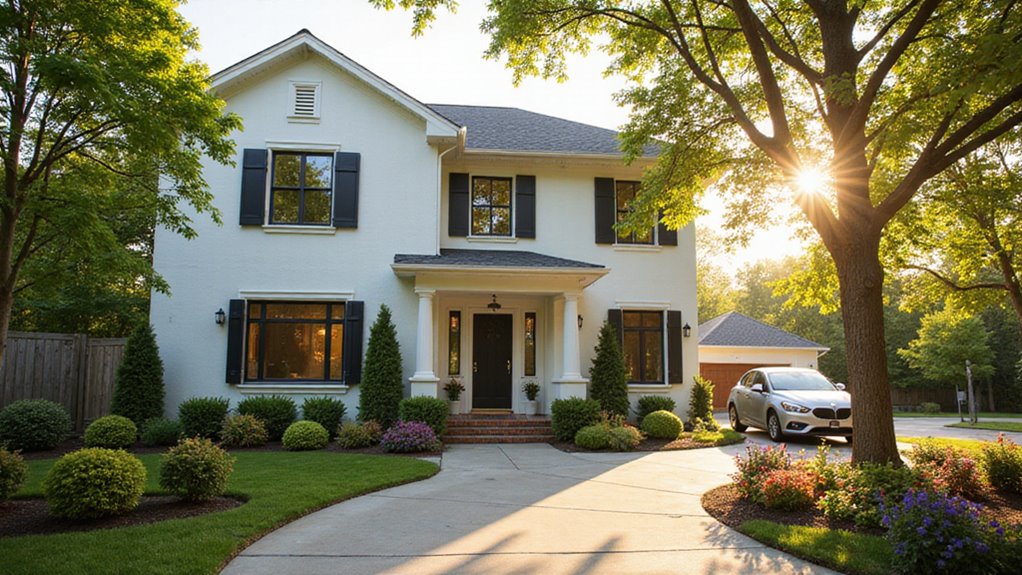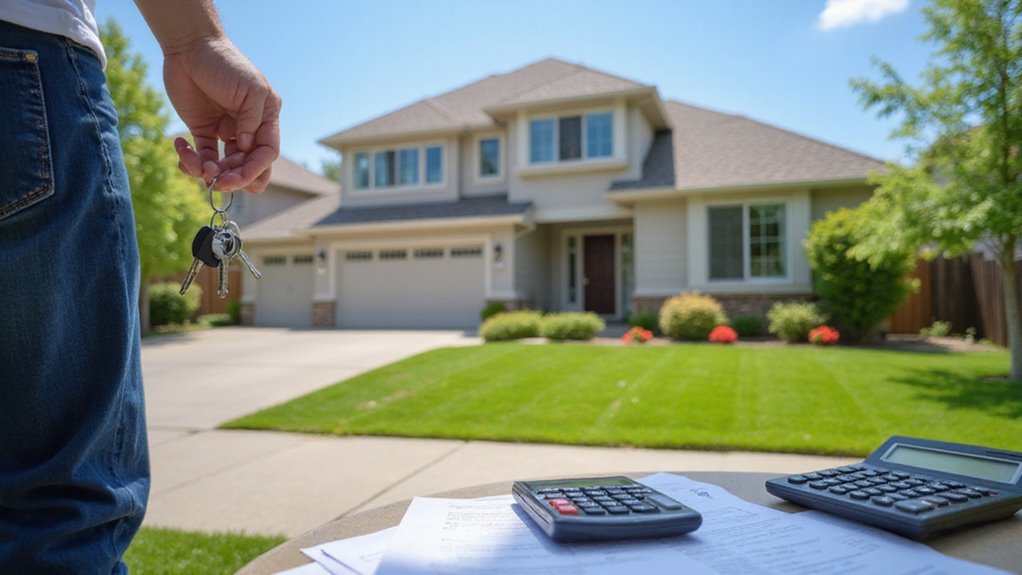Homeowners caught in a one-year living situation often face unexpected financial minefields. Selling so quickly can trigger hefty tax bills, costly penalties, and transaction fees that devour potential profits. However, with proper planning and expert guidance, navigating these challenges becomes manageable for those needing to sell early.
You can absolutely sell your house after just one year of ownership, though it typically comes with financial consequences. These include short-term capital gains taxes (taxed as ordinary income), potential prepayment penalties on your mortgage, and various transaction costs. In this blog I will explore everything related to selling your house after owning it for just one year.
Property sales within the first year may also face restrictions from HOA regulations or deed limitations. These legal hurdles might restrict when or how you can transfer ownership.
Transaction costs add another layer of expense to early sales. Realtor commissions, closing costs, and transfer taxes can significantly reduce your proceeds.
Tax implications often hit hardest when selling within a year. Without the capital gains exclusion available to longer-term homeowners, profits become fully taxable.
Many mortgages include prepayment penalties during the first few years. These fees discourage early payoffs and can cost thousands of dollars.
Consulting with tax professionals and real estate experts remains essential. Their guidance can help minimize costs and navigate potential pitfalls of early home sales.
Key Takeaways
- Selling a house after one year is legal in all states but may trigger short-term capital gains taxes.
- Prepayment penalties and deed restrictions could limit or complicate a quick sale within the first year.
- Short-term sales are taxed as ordinary income, which can be higher than long-term capital gains rates.
- Transaction costs and potential losses often outweigh profits unless market conditions are favorable.
- Working with cash buyers or quick-sale companies like Shawn Buys Houses can expedite the process with fewer restrictions.
Can You Sell Your House After Owning for Just One Year?

Yes, you can sell your house after just one year of ownership. This quick timeline is legally permissible in all states, including Oklahoma City.
Short-term property sales are taxed as ordinary income rather than capital gains. Financial considerations matter when selling so soon.
You’ll face closing costs, agent commissions, and potential market value changes.
Remember that housing markets fluctuate seasonally. The fees associated with selling might offset any profit from the sale.
Most financial advisors recommend longer ownership periods for better returns on real estate investments.
What Are the Legal Restrictions on Selling After a Year?

You need to review your mortgage contract for any prepayment penalties before selling.
Check for deed restrictions in your neighborhood that might limit your resale options.
Also, selling within a year doesn’t affect your homestead exemption, but local rules could impose other restrictions.
Mortgage Contract Terms
Prepayment penalties are fees charged when you pay off your mortgage early. These penalties typically apply during the first 1-3 years of your loan term. You might face these charges when selling your home, refinancing, or making large extra payments.
The penalty amount varies by lender and loan type. Before signing any mortgage, review the prepayment terms carefully.
Ask your lender to explain the exact conditions that trigger penalties. Federal law requires lenders to disclose all prepayment penalties in your loan estimate document. Many modern mortgages no longer include these penalties.
Remember to factor potential penalties into your home selling plans.
Deed Restrictions
Deed restrictions can legally limit when you can sell your property. Most restrictions affect sales within the first year of ownership.
Specific limitations are recorded in county documents and vary by neighborhood.
These constraints protect community interests but may hinder your selling timeline. Common examples include minimum ownership periods or approval requirements from homeowners associations.
Before planning to sell, review your property’s deed carefully.
Additionally, check Oklahoma County records for complete details on your property’s restrictions.
Understanding these limitations early helps you develop a realistic selling timeline and avoid legal complications.
Homestead Exemption Limitations
No penalties exist for selling your Oklahoma home within a year of purchase. You can sell whenever you choose without direct financial penalties.
The homestead exemption only affects your property tax bill during ownership, not your ability to sell.
This exemption provides tax benefits while you live in the home. When you sell early, you simply stop receiving future exemption benefits.
Oklahoma law doesn’t penalize homeowners for selling soon after claiming the exemption.
The key consideration involves your property tax planning. Your tax situation changes when you no longer qualify as an owner-occupant.
Therefore, timing your sale strategically helps maximize available tax advantages.
What Financial Impacts Should You Consider?

Selling within one year involves substantial costs that can reduce your profits. Transaction costs typically range from 6-10% of your sale price. These include agent commissions, closing fees, and other expenses.
Short-term capital gains are taxed as ordinary income****, unlike long-term investments held over a year. Your property may not appreciate enough in just twelve months to offset these expenses.
Market conditions play a key role in determining your final profit margin. Furthermore, mortgage prepayment penalties might apply depending on your loan terms.
To summarize, quick sales often result in financial losses unless market conditions are exceptionally favorable.
How Do Capital Gains Taxes Affect Your Sale?
Capital gains taxes reduce your profit when selling property based on how long you’ve owned it. Your tax rate depends on your ownership period.
Short-term sales (less than one year) face ordinary income tax rates up to 37%.
Long-term sales qualify for lower rates, typically 0%, 15%, or 20%.
The timing of your sale matters significantly for tax planning. Many homeowners benefit from waiting at least one year.
Long-term ownership may also qualify you for exclusions of up to $250,000 (single) or $500,000 (married filing jointly).
Additionally, your total taxable income determines your specific rate. Smart planning can help you maximize after-tax profits from your sale.
Will You Actually Make a Profit Selling So Soon?
Selling after just one year rarely generates profit. Most homes need more time to appreciate enough to cover transaction costs.
One year of ownership typically produces minimal value increases in normal market conditions.
The math often works against short-term sellers. Closing costs, agent commissions, and transfer taxes consume 8-10% of your sale price.
Furthermore, capital gains taxes may apply without sufficient appreciation. Any improvements you’ve made probably won’t recoup their full cost yet.
Local market conditions ultimately determine your outcome.
In most cases, waiting at least 3-5 years creates better profit potential.
What Are the Pros and Cons of Selling After a Year?
Selling after one year usually costs more than potential profits. The main benefit is quick cash if market values have risen. You can also relocate without delay if your situation changes.
The downsides are significant financial penalties. You’ll face capital gains taxes without the two-year ownership exemption. Transaction costs typically consume 8-10% of your sale price.
Home appreciation rarely exceeds these combined expenses within just twelve months.
Most experts recommend holding property for at least 3-5 years. This timeline allows equity to build and market fluctuations to work in your favor.
How to Sell Your House Quickly After One Year
To sell your house quickly after one year, start by setting a competitive price using recent local sales and appraisals.
Make strategic improvements like fresh paint or landscaping to attract buyers fast, and choose the right selling method—whether listing with an agent, FSBO, or targeting cash buyers.
Working with cash buyers can streamline the process, helping you close faster and avoid potential financing delays.
Setting the Right Price
Price your property at fair market value to sell within one year. Research comparable properties in your neighborhood first.
Look at similar homes that sold recently to establish your baseline price. Add your closing costs to this baseline to avoid losing money.
Accurate pricing attracts serious buyers and prevents your home from sitting on the market too long. Overpriced homes often receive fewer showings and less interest overall.
As a result, they typically sell for less than properly priced homes.
Furthermore, working with a real estate agent can provide valuable pricing insights. They understand local market trends and buyer expectations.
Making Strategic Improvements
Focus on high-ROI updates to sell your home faster and for more money. Fresh paint, updated landscaping, and fixing small issues make the best impression on buyers.
Strategic projects can return 70-90% of their cost in increased sale value. Smart improvements shine in competitive markets.
The best changes boost curb appeal and modernize outdated features. Consider market trends before investing in major renovations.
For example, kitchen refreshes often pay off more than complete remodels. Subsequently, bathroom updates tend to attract serious buyers quickly.
Finding the Right Selling Strategy
To sell your house quickly after one year, focus on strategic pricing, cost reduction, and visual appeal. Set your price based on recent local sales data.
The right price point attracts more potential buyers and generates multiple offers. Consider negotiating lower commission rates with agents or explore selling by owner.
Fresh paint, clean landscaping, and decluttered spaces make powerful first impressions. These simple improvements often yield the highest return on investment.
Your potential buyers need to envision themselves in the space immediately. Professional photos highlight your home’s best features and draw more online interest.
Additionally, flexible showing schedules accommodate serious buyers on their timeline.
Working with Cash Buyers
Cash buyers offer a faster home selling process with fewer complications. They typically close deals within 1-2 weeks instead of the standard 30-45 days.
These buyers don’t need mortgage approvals, which eliminates financing contingencies and reduces closing time. Additionally, cash transactions often involve fewer inspections and appraisal requirements.
To attract cash buyers, price your home competitively and highlight its investment potential. Many cash buyers look for properties they can quickly renovate and resell.
Most cash buyers expect a 10-15% discount from market value in exchange for their quick, guaranteed purchase.
For best results, work with real estate agents who specialize in investment properties and have networks of reliable cash buyers.
Ready to Sell Your House Fast? Contact Shawn Buys Houses Today!
Shawn Buys Houses can help you sell quickly. Contact them directly for a fast, fair cash offer without the usual hassles of traditional selling.
Shawn specializes in buying properties as-is, eliminating the need for repairs or staging. Most sellers receive offers within 24 hours and can close in as little as 7 days.
This approach works well for homeowners facing foreclosure, inheritance situations, or relocation needs.
In addition to speed, selling to Shawn means no real estate commissions or hidden fees. The entire process prioritizes simplicity and transparency.
Furthermore, you won’t need to host open houses or manage multiple showings.
Frequently Asked Questions
Are There Any Specific Local Oklahoma City Restrictions on Short-Term Property Sales?
Oklahoma City has no specific restrictions on selling property after a year, but check local deed restrictions and neighborhood covenants recorded with the county. Ensure your sale complies with mortgage terms and local regulations to avoid issues.
How Does Selling Within a Year Impact Mortgage Prepayment Penalties?
Selling within a year usually doesn’t trigger prepayment penalties unless your mortgage contract specifically includes such clauses. Check your loan documents carefully; if penalties exist, paying early could cost you extra, so plan accordingly to serve your best interests.
Can I Deduct Any Selling Costs From My Tax Liability After One Year?
Yes, you can deduct selling costs like agent commissions, closing fees, and legal expenses from your taxable gain. Keep detailed records, as these deductions can reduce your overall tax liability when you sell within a year.
What Are Typical Closing Costs for a Quick Sale in Oklahoma City?
When selling your Oklahoma City home quickly, expect closing costs to be around 6-10%, covering agent commissions, transfer taxes, and title fees. Planning for these expenses helps you serve others by ensuring smooth, transparent transactions.
Does a Recent Market Surge Justify Selling After Just One Year?
A recent market surge can justify selling after a year if it significantly boosts your profit capacity. However, consider high closing costs, taxes, and market timing risks; prioritize your financial and personal needs before making this quick sale decision.

